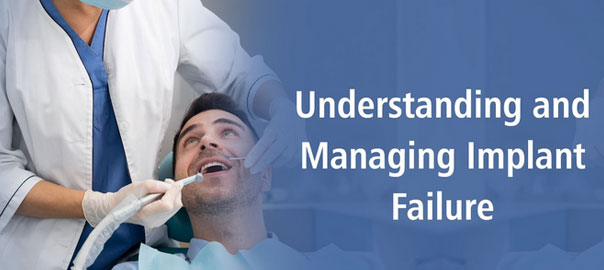
When Dental Implants Fall Short: Understanding and Managing Implant Failure
Imagine an imaginary world with zero gaps and in which the smile of a person flashed out with no hesitation. For millions of people around the globe, such a vision came true through dental implants, which have been deemed to be a viable as well as a long-term solution for tooth loss by creating artificial roots made of titanium to be placed in the jawbone surgically. Though the success rate of dental implant procedures is convincingly high, implants sometimes fail to integrate properly or fail in other ways.
We will probe into the causes of the problem, risk factors that may contribute to the failure, and possible ways that may help in the management failures with regards to the dental implants. It is through establishing such an awareness of complexities associated with implant failure that will better arm both patients and dental professionals with insight and tools to help avert risk, maximize outcome, and ensure long life for dental implants.
Causes of Failure in Dental Implants
- Poor Osseointegration: Among all the causes of implant failures, improper osseointegration mainly stems from poor osseointegration. This is the failure of an implant in osseointegration with the adjacent jawbone; it is facilitated by low density of the bone, infection, smoking, and other systemic diseases like diabetes.
- Peri-implantitis: This condition is basically the inflammation and infection of the tissue surrounding the implant just like periodontal disease. Peri-implantitis can also arise due to poor oral hygiene, bacterial contamination at the time of surgery, or pre-existing gum disease.
- Mechanical Complications: Mechanical complications are the problems that may lead to failure of implants and include fracture of an implant, loosening of the screws, and fracture of prosthetic components. These problems usually occur because of excessive biting forces or a badly designed implant or inadequately planned prosthetic.
Signs and Symptoms of Implant Failure
- Pain and Discomfort: Pain and discomfort at the site of the implant. Such impacts on biting and chewing, and signs or symptoms may be associated with localized swellings, redness, or discharge.
- Mobility: The implants should be stable and firmly fixed in the jawbone. A movement or loosening would be a notice of failure.
- Recession of Gum Tissue: The gum tissue that supported the implant starts to recede from around the implant, thus exposing the metallic structure of the implant. This is yet another sign of an implant failure.
- Prosthetic-Related Issues: When a crowned, bridged, or a denture-which initially fit just perfectly over the top of a working implant-an implant becomes loose and begins to crack or no longer fit in its place, it may be because of an implant failure.
Prevention and Management
- Full Assessment: A full assessment of the patient’s mouth should be able to consider bone density, gum condition, and other systemic factors before placement in order to detect probable risks and determine the correct course of treatment.
- Correct Surgical Procedure: The implant should only be placed by persons who are highly trained and experienced after proper surgical protocol to avoid complications before, during, and after the treatment.
- Good Oral Hygiene: It would prevent developing peri-implantitis if they practice good oral hygiene habits. To achieve this, the patients need to be encouraged to brush and floss daily. They should also be educated regarding professional cleaning from time to time.
- Timely Prevention: There is a need to identify and treat the signs of early failure of an implant. Nonsurgical procedures can be used in addressing early signs of implant failure. In this case, it would be antibiotics, conservative debridement, or surgical intervention with the removal of the implant or bone grafting.
Patient education and expectations are such crucial elements of quality patient communication that the risks and limitations of Dental implants should also form part of this process. Proper expectations and proper aftercare of an implant prevent its failure.
That is so fascinating about dental implants: you can have a tooth replaced. Nobody promises that a particular implant will be 100% successful; therefore, studies of failure causes and identification of symptoms can encourage preventive measures and time management.
Leave a Reply
Leave a Reply
Explore More Similar Posts
Explore More Blogs


Leave a Reply